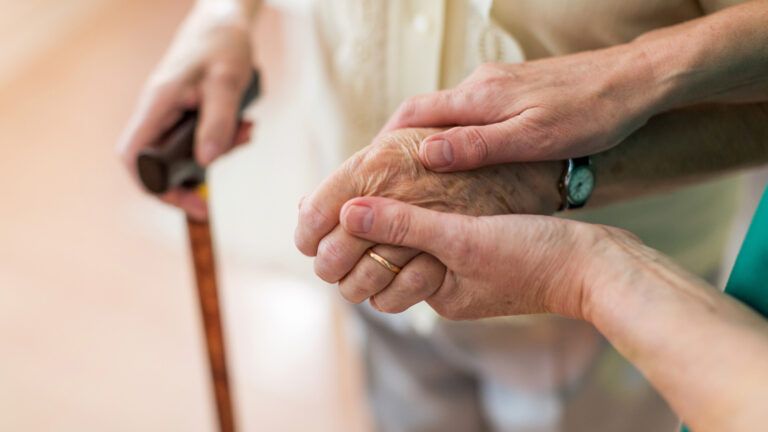Driving to Brightmoor nursing home that night for dinner with my wife, Estelle, I found myself remembering all the miles we’d logged together on our traveling seminars for the United Methodist Church. It was Estelle who’d come up with the idea to start Discover God’s Call. Like everything else we did, the seminars were a full-fledged collaboration. At the podium we shared speaking time, and on the road between churches we shared the driving.
Those adventures seemed a lifetime away now when I opened the door to Estelle’s room at Brightmoor and she looked up at me from her chair by the window with that awful, blank expression.
“It’s okay, sweetheart,” I said. “It’s just me, Gus—your hubby.”
“A small stroke,” I’d been told when Estelle’s symptoms first began. “Her memory may be mildly impaired, but otherwise she should be fine.”
The doctors were definitely right about the memory part. Estelle started getting more and more forgetful around the house. Soon I was doing all the speaking at our seminars, Estelle sitting in the front row with a warm, encouraging smile on her face.
Then came the devastating diagnosis from the doctors: Alzheimer’s. I called a meeting of the national board of Discover God’s Call. With Estelle by my side, I told them we had to take what I optimistically called a leave of absence.
Taking care of Estelle became my new job. I not only did all the cooking, but eventually I had to feed Estelle too. Showers, brushing teeth, bathroom visits—everything required my help. Once while I was taking an afternoon nap, she wandered off. I got dead bolts for all our doors. Still I couldn’t always keep an eye on her, and I finally realized Estelle needed more care than I could give. On January 2, 1997, Estelle moved into Brightmoor.
Estelle’s look of fear and confusion when I left her there the first night really killed me. The staff tried to help. “You live so close by,” one of the nurses said to me. “Why don’t you plan on having your dinners here with Estelle?”
So that night, like every night, I had my dinner with Estelle in a corner of the dining room. I alternated between feeding her and making conversation—about the weather, what I’d seen on the news, the goings-on at church. But Estelle didn’t seem to be hearing me at all. We used to talk long into the night, knowing each other so well we’d finish each other’s sentences. Now even these simple subjects were more than we could share. Dear God, I prayed, I miss my wife.
I couldn’t bear to watch her stare out the window, as if I weren’t there at all, a moment longer. “How about a walk, Estelle?” I suggested. She didn’t respond. I helped Estelle to her feet and guided her to the exit. Arm in arm, she and I made our way down the halls. As we went past one room after another, most of them only enlivened by nothing more than a radio or TV, my spirits sank further. If only there were a way to reach out to all these lonely people.
We came upon a particularly mournful-looking woman, sitting in a wheelchair just outside her room. Estelle stopped to stare at her. “Good evening,” I said. The woman looked back, impassive.
Then Estelle touched the woman’s shoulder and gave her one of those wonderful smiles of hers—the kind that had won Estelle so many friends on our tours. Instantly, the woman brightened. “Good evening to you folks too,” she said.
“That was beautiful, Estelle,” I said as we continued on. “You just changed that woman’s whole day.” Estelle’s fingers tightened around mine.
That single smile was the turning point. Before long we started making regular rounds at the home. We’d pick up mail for people, look through their photo albums, or just listen.
Estelle has both good days and bad, and the bad ones can be agonizing. But every so often, as we set off down the hall hand in hand to visit our “regulars,” she’ll turn and give me one of those smiles of hers. And I’ll know that, now as ever, we’re still a team.
*This story appeared in the February 2001 issue of Guideposts magazine.
Did you enjoy this story? Subscribe to Guideposts magazine.






